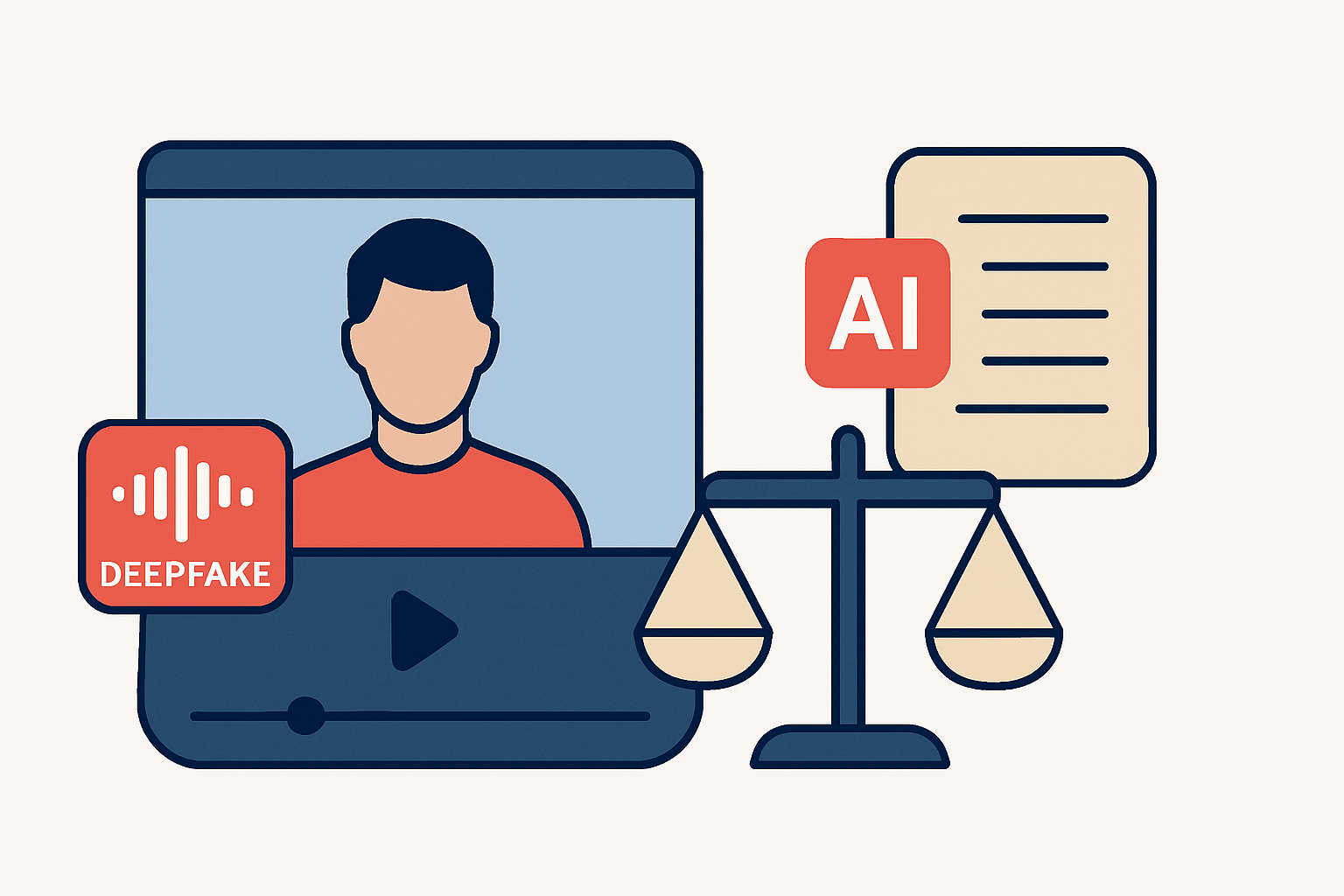Deepfake Laws & Creator Impact

Many content creators are exploring the possibilities of artificial intelligence, but at the same time they’re becoming increasingly concerned about new deepfake laws and AI regulations. For professionals who rely on creating and publishing content, understanding the impact of these regulations is crucial for staying compliant while protecting their work. Platforms like Audiorista make it easier to transform content into engaging audio experiences while safeguarding intellectual property. This guide explores the major legal implications, industry trends, and clear steps creators can take to stay ahead of evolving compliance standards.
Legal impacts on content creators
Deepfake technology has grown from a niche innovation into a global phenomenon, pushing governments around the world to respond quickly with updated legislation. National and international authorities are fast-tracking AI content regulations to address challenges of authenticity, security, and public trust. From Europe’s more robust digital policy frameworks to U.S. state laws targeting impersonation, the movement toward compliance standards is accelerating.
For creators, these emerging laws matter because they directly influence how AI-generated content can be produced, distributed, and monetized. Publishing industries, broadcasters, educators, and media companies are now facing the need to adapt strategies to ensure compliance with rapidly changing rules. The creator impact is clear: understanding the implications of deepfake regulations is no longer optional—it’s becoming essential for sustainable content publishing.
Deepfake technology presents content creators with unique legal risks. One of the primary concerns is misrepresentation, where synthetic content could be misused in ways that infringe on personal rights or result in fraud claims. When content alters or fabricates likenesses, the potential for reputational harm increases. This creates compliance risks that affect both individuals and companies distributing AI-based media.
Another central issue is the connection between copyright infringement and deepfake technology. Because deepfakes often borrow elements from existing content—such as a voice or image—there may be situations where rights are violated unintentionally. Intellectual property concerns also extend to the subjects involved: the challenge lies in balancing creative innovation with respect for the rights of those depicted. For creators, this represents a critical legal environment where awareness and safeguards must be prioritized.
Copyright and ownership
One of the most pressing challenges with deepfake-generated works lies in determining ownership. Since deepfake content is created through AI modeling, the boundaries of copyright law are often unclear. Questions arise about whether AI-generated works can be copyrighted at all, and if so, whether the rights belong to the creator, the subject, or potentially neither under current law. These uncertainties make publication and monetization decisions more complex.
For original creators who want to establish clear ownership, using reliable content distribution platforms is a safeguard. Audiorista empowers creators to distribute and protect their original material without risking unclear intellectual property disputes. By giving creators ownership over their audio distribution channels, platforms like Audiorista offer clarity and control in an otherwise murky legal space. This makes it possible for professionals to publish confidently while mitigating risk. Audiorista’s platform is designed to ensure creators retain full control of their content, and its tools help manage rights and permissions efficiently.
Practical steps for compliance
Creators who work with AI and deepfake technologies can take important steps to remain compliant. Best practices include always disclosing when AI tools are used, ensuring that rights to likenesses are respected, and avoiding any misrepresentation that might expose them to fraud claims. Transparency is quickly becoming a regulatory requirement, making it essential to document processes and protect all parties involved in creative production.
Platforms like Audiorista play a practical role in this compliance journey by allowing creators to distribute content safely and ethically. By transforming original works into audio formats, creators can avoid some of the high-risk areas of deepfake misuse. Through Audiorista apps, creators can adapt their content into formats that are both compelling and legally safe for distribution. Audiorista provides no-code tools for building branded audio apps, enabling creators to manage access, monetize content, and maintain compliance with privacy and copyright standards.
Additionally, adopting publishing apps for creators ensures secure content delivery mechanisms. Whether you think of them as AI content tools for creators or secure distribution platforms, the underlying advantage is clarity: Audiorista gives you ownership of your channels while reducing risks tied to misrepresentation, copyright ambiguity, and compliance breaches. This approach represents an effective path for any creator navigating today’s complex rules. Audiorista’s robust analytics, user management, and customizable paywall features further support compliance and content protection strategies.
Future implications and final thoughts
Looking ahead, deepfake regulations are expected to become more structured, with clearly defined industry compliance standards. Legislators are increasingly aware of the creator impact these technologies have, and they’re working toward more predictable rules that balance innovation with protection. While regulations differ across countries, the overall trajectory points toward a more accountable ecosystem for AI content.
Creators should anticipate increasing requirements for transparency, ethical use disclosures, and stronger protections for subjects whose likenesses are digitally manipulated. By preparing now, professionals can reduce compliance risks and position themselves for long-term success in publishing. Forward-looking adoption of secure platforms means creators won’t be caught off-guard when future laws demand stronger oversight and accountability. With Audiorista, creators are equipped to adapt to new regulations through features such as secure content hosting, flexible access control, and streamlined rights management.
Deepfake technology is transforming the media industry, but it’s also raising significant legal questions about ownership, copyright, and distribution. Understanding how deepfake laws shape content creation helps professionals avoid risks while maintaining creative opportunities. With clear strategies for compliance and the support of platforms like Audiorista, creators can focus on sustainable innovation rather than legal uncertainty.
Start protecting your creativity—use Audiorista to publish and distribute your work securely across platforms, while staying compliant with the latest AI and deepfake regulations.


